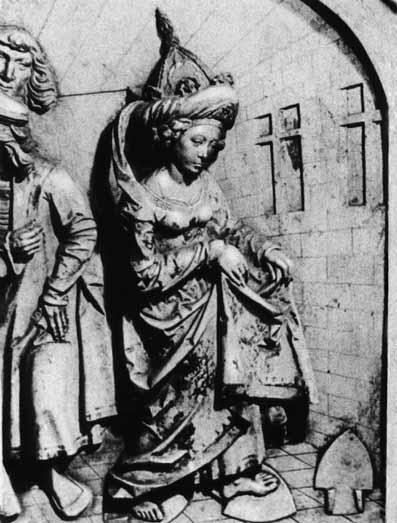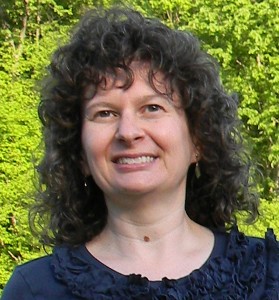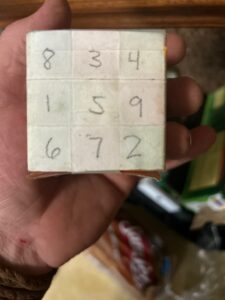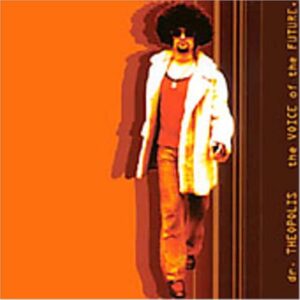First published Sept. 8, 2014, on Spann of Time http://www.susanspann.com

Who’s Guilty? God Knows.
By Kim Rendfeld
Delve into the justice system of early medieval Francia and you might find yourself grateful for what we have today, imperfect as it is.
And I’m not only talking about the punishments for the guilty: slit nostrils, the slow strangulation of hanging, chopping off a hand, the witch’s death of being sealed in a barrel and thrown into a river, or the traitor’s death of being tied to stallions and torn apart, to just give a few examples. Even with recognizable elements such as oaths, the trials themselves are problematic to a modern audience.
But those trials make sense in the medieval mind, which believed that the God who intervened on the battlefield would not let an innocent person be falsely convicted. The procedure depended on who was conducting the trial, which could be for a crime or a dispute between neighbors.
Duels between aggrieved parties, or champions fighting on their behalf, were an acceptable way to determine who was right.
So was trial by ordeal, which predates Christianity among Germanic peoples. Both parties, or their champions, swore oaths and then did something to hurt themselves. The methods varied. The men might stick their hands in a pot of boiling water to grab a rock or walk over red-hot or white-hot irons. However they were injured, the wounds would then be bound and whoever got an infection was in the wrong. Healing or the lack thereof was a sign from God. Another sign came from an ordeal where the parties held out their arms in the shape of a cross. Whoever stumbled or could no longer hold up their arms was guilty.
Trial by ordeal was widely accepted, even among Christian clerics, but some scholars, including Agobard and Theodulf, argued trial by ordeal was impious.
I used this history to write a murder trial, excerpted from my latest release The Ashes of Heaven’s Pillar:
In the receiving room, the abbot sat on an ornate, high-backed chair resembling a throne, and the priest and three monks sat on stools to either side. A clerk stood to the far left with a wax tablet. A stone pedestal held a piece of wood, a relic of a saint, Deorlaf guessed. On the wall behind the abbot was a mural of the Final Judgment, where a giant figure of Christ had a book spread before Him and a long line of tiny, naked people awaited their fates. To Deorlaf’s relief, there was no boiling water or hot irons for an ordeal. Apparently, this abbot frowned on such tests of guilt.Two burly tenants brought Usumund in chains. His face bruised and his lip swollen, he had the look of a cornered boar determined to gore its way out. After the abbot’s prayer, everyone took an oath, swearing on the relic, a piece of a fallen branch from a tree Saint Riquier liked to rest under.Usumund’s story was even more inconsistent this time. Deorlaf was not surprised when Usumund again called him a God-cursed Saxon and devil worshipper, but a chill coursed up the back of his neck when Usumund brought up the thieving and killing.“What say you, Deorlaf?” the abbot said in a tone that was more command than question.Not wishing to lie outright, Deorlaf searched for an answer, glancing at the cross that hung from his neck. The cross, it holds my freedom! The tight bands on his chest loosened. “As Usumund pointed out, I am a Saxon, but I was baptized when I had seen…” he counted on his fingers, “twelve winters. I never made sacrifices to the Devil before or after my baptism.”“He is lying,” Usumund shouted.“Quiet, Usumund,” the abbot barked, “you have said your piece. Deorlaf, why would Usumund say you are a killer and a sorcerer if it wasn’t true?”“Usumund and I have never been friends,” Deorlaf said, his voice steady as he stuck to the literal truth. “He is still angry that I foiled his attempt to rape a woman. I knew of no other way except to say a few words in Saxon and tell him it was a spell to unman him. Yes, I lied to protect a woman, but I used no black magic.”“Father Abbot,” Ives said, stepping forward, “if Deorlaf wished to damn Gosbert, why does he try to lessen our friend’s time in purgatory by giving alms? You have heard Usumund’s lies with your own ears. First, he swears Deorlaf killed Gosbert by magic. Then, he insists Deorlaf gave Gosbert nightshade. Now his story is that Deorlaf enchanted him to poison Gosbert. How can Usumund be telling the truth when he cannot tell the same story about two nights past?”Ives never raised his voice, but a current of fury ran through it. A whimper drew Deorlaf’s attention. Julien seemed ready to faint or spew. Deorlaf had to explain the boy’s behavior. “Father Abbot, Usumund offered Julien the nightshade first. The thought that someone would do him ill fills him with dread.”The abbot nodded. In turn, he asked Deorlaf, Ives, and Julien about the night Gosbert had died. All of their stories were consistent.“I need time to deliberate with my fellows,” the abbot said.***SourcesPierre Riché’s Daily Life in the World of Charlemagne“Ordeals” by Johann Peter Kirsch, The Catholic Encyclopedia, Vol. 11, 1911. [http://www.newadvent.org/cathen/11276b.htm]



